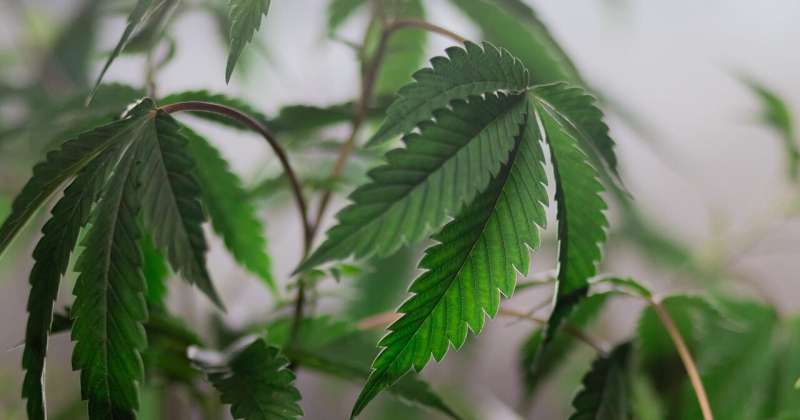
Schulich School of Medicine & Dentistry researchers have shown that chronic exposure during adolescence to tetrahydrocannabinol (THC), the main psychoactive component of cannabis, may induce long-lasting memory impairments and increased anxiety levels.
The study, published in the journal Neuropsychopharmacology, uses a rodent model to pinpoint two different parts of the brain—the dorsal and the ventral regions in the hippocampus—and shows evidence of different sets of abnormalities in each region following THC exposure.
The researchers identified several key molecular and neuronal anomalies in specific regions of the hippocampus that might be independently responsible for the cognitive and emotional side effects. The study confirms previous work from their lab that shows THC exposure during adolescence can induce long-lasting disturbances.
“Following the legalization of cannabis, there is evidence of a reduction in perceived risks associated with cannabis use. There is a need to expand knowledge on the potential negative consequences of cannabis exposure during adolescence and this study addresses some of those gaps,” said Marta De Felice, who emphasized the need to have crucial scientific evidence to inform public health policy.
De Felice is the lead author of the study and a BrainsCAN postdoctoral researcher with the Addiction Research Group under the supervision of Steven Laviolette, senior author of the study and professor in the departments of anatomy and cell biology, and psychiatry at Schulich Medicine & Dentistry.
The goal of the research was also to identify new information at the molecular level of the brain that may lead to a better understanding of the risks of developing neuropsychiatric conditions, including schizophrenia, due to sustained cannabis consumption during adolescence.
“Adolescents consuming cannabis may not be thinking of the negative long-term impacts. Our findings suggest adolescent cannabis use may affect cognitive and emotional functions through different brain pathways,” said Laviolette. “The detailed anatomical findings of the study give us a chance to use more targeted interventions that might reverse the long-lasting impairments and symptoms following cannabis exposure during adolescence.”
More information:
Marta De Felice et al, Adolescent Δ-9-tetrahydrocannabinol exposure induces differential acute and long-term neuronal and molecular disturbances in dorsal vs. ventral hippocampal subregions, Neuropsychopharmacology (2022). DOI: 10.1038/s41386-022-01496-x
Journal information:
Neuropsychopharmacology
Source: Read Full Article